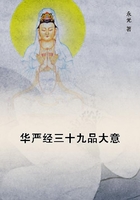In his letters, and more especially in his familiar intercourse with his friends,[37] his conversation was frequently risky and indecent;his relations with women, at least before his marriage with Catherine Bora, were, to put it mildly, not above suspicion, as is evident from his own letters and the letters of his most devoted supporters; while his references to marriage and vows of chastity in his sermons and pamphlets were filthy and unpardonable even in an age when people were much more outspoken on such subjects than they are at present. Though he insisted strongly on the necessity of preaching the pure Word of God, he had little difficulty in having recourse to falsehood when truth did not serve his purpose, or in justifying his conduct by advocating the principle that not all lies were sinful particularly if they helped to damage the Roman Church. His frequent and enthusiastic references to the pleasures of the table were more like what one should expect to find in the writings of a Pagan epicure than in those of a Christian reformer. He was not, as is sometimes asserted, a habitual drunkard. His tireless activity as a writer and preacher is in itself a sufficient refutation of such a charge, but he was convinced that a hard drinking bout was at times good for both soul and body, and in this respect at least he certainly lived up to his convictions.[38]
It would be a mistake to judge him by his Latin writings, which, both in manner and style, seldom rise above the level of mediocrity. It is in his German books and pamphlets that Luther is seen at his best.
There, he appears as a man of great ability and learning, gifted with a prodigious memory, a striking literary style, and a happy knack of seizing upon the weak points of his adversaries and of presenting his own side of the case in its most forcible and attractive form. No man knew better than he how to adapt himself to the tastes of his audience or the prejudices of his readers. He could play the role of the judge or the professor almost as well as that of the impassioned fanatic convinced that behind him were arrayed all the powers of Heaven. In dealing with men of education, who were not likely to be captivated by rhetoric, he could be calm and argumentative; but when he addressed himself to the masses of the people he appeared in his true character as a popular demagogue, hesitating at nothing that was likely to arouse their indignation against the Roman Church and their enthusiasm for the movement to which he had devoted his life. In words of fiery eloquence he recalled to their minds the real and imaginary grievances of their nation against Rome, the over-weening pride and tyranny of the spiritual princes, the scandalous lives of many of the ecclesiastics, and the failure of the Pope and councils to carry through a scheme of wholesale reform. He called upon them to throw off the yoke imposed by foreigners on their fathers and themselves, and to support him in his struggle for the liberty of the people, the independence of the German nation, and the original purity of the Gospel, promising them that if only they would range themselves under his banner, all their grievances, both spiritual and temporal, must soon be redressed. Had Luther never appeared, or had he been less gifted as an orator, a writer and a popular leader than he was, a crisis must have arisen at the time; but his genius and enthusiasm turned what might have been a trickling stream into a raging torrent, threatening destruction to beliefs and institutions hitherto regarded as inviolable. The time was ripe for a reformer, and Luther's only claim to greatness was his capacity of utilising in a masterly way the materials, political and religious, that lay ready at his hand.
Religious abuses, social unrest, politics, personal vanities, and the excesses always attendant upon a great literary revival, were pressed into his service, and were directed against the Roman Church. And yet his success fell far short of his expectations. Beyond doubt he contrived to detach individuals and kingdoms from their obedience to the Pope and their submission to ecclesiastical authority only to subject them to the spiritual yoke of secular princes, and to expose them to doctrinal anarchy subversive of dogmatic religion; but the Catholic Church and the See of Rome, for the overthrow of which he had laboured so energetically, emerged triumphant from the terrible trial that had been permitted by God only for its purification.
During the period that intervened between the /Ratisbon Interim/ and the death of Luther (1541-6) Charles V., hard pressed by the war with France and the unsuccessful expeditions against the Barbary pirates, was obliged to yield to the increasing demands of the Protestant princes; nor could Paul III., however much he desired it, realise his intention of convoking a General Council. But at last the Peace of Crepy (1544) which put an end to the war with France, and the convocation of a General Council to meet at Trent in March 1545, strengthened the hands of the Emperor, and enabled him to deal effectively with the religious revolution. The Protestant princes announced their determination to take no part in a Council convoked and presided over by the Pope. Charles left no stone unturned to induce them to adopt a more conciliatory attitude, but all his efforts having proved unavailing, he let it be known publicly that he would not allow himself to be intimidated by threats of violence, and that if need be he would insist on obedience at the point of the sword.
John Frederick of Saxony and Philip of Hesse, alarmed by the threatening aspect of affairs, determined to anticipate the Emperor, and took the field at the head of an army of forty thousand men (1546).















